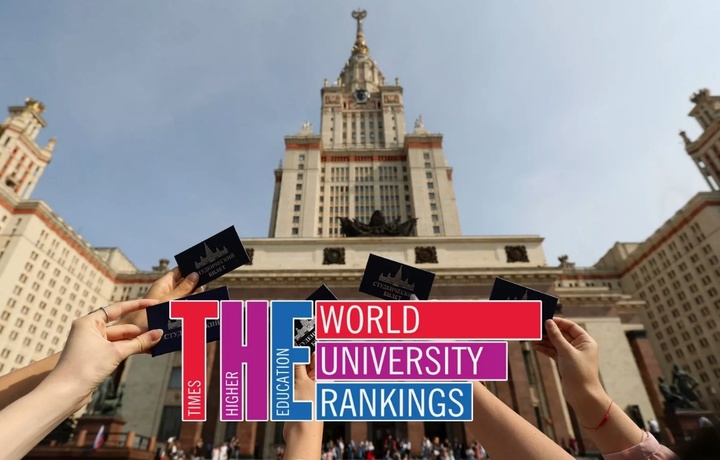Introduction
The Times Higher Education (THE) World University Rankings and the QS World University Rankings are two highly regarded annual publications that rank recognised universities and courses across the globe. These higher education world university rankings provide students with priceless information that aids their decision-making process.
What Is the Times Higher Education Ranking?
The Times Education World University rankings were established in 2004. It offers a centralised resource to access information on a university’s performance on a global stage, study their improvement over time, and understand the mission of various higher education institutions.
The Importance of Rankings like THE
Global rankings like THE are more than just numbers. They serve as a guide for students to make strategic career choices.
1. Assessing Academic Quality
University rankings are designed to evaluate institutions based on critical metrics such as teaching quality, research output, and academic influence. THE, for instance, uses indicators like citations per paper and student-to-staff ratios to measure institutional performance. This structured assessment allows students to identify universities that align with their academic aspirations and maintain high standards of excellence.
2. Enhancing Prestige and Career Prospects
Graduating from a highly ranked university can significantly impact career trajectories. Employers often perceive graduates from top-tier institutions as better prepared and more skilled, leading to enhanced job opportunities and higher earning potential. Furthermore, a prestigious university on your resume can provide a competitive edge in the global job market.
Valuing an International Perspective
Global rankings also measure a university’s international outlook, which includes the diversity of its student body and faculty, as well as global research collaborations. For students, this is a critical factor, as a culturally diverse campus fosters cross-cultural interactions and broadens perspectives. Universities with strong international representation often prepare students better for global careers.
3. Subject-Specific Excellence
While overall rankings provide a broad perspective, subject-specific rankings are vital for students targeting specific fields. Many universities may not rank highly overall but excel in specific disciplines such as engineering, medicine, or arts. Exploring these specialised rankings ensure students select institutions that offer top-tier programs in their chosen area of study.
Evaluating the Times Global University Rankings
Rankings cover three main areas – research (or global ranking), impact and teaching.
There are 18 performance indicators that are used to rank institutions covering vital areas of activity – research, teaching, knowledge transfer and international outlook. Critical indicators include:
- Teaching Reputation
- Student-Teacher Ratio
- Doctorate-Bachelor Ratio
- Research Reputation
- Research Productivity
- Industry Income
- International Students and Staff
With 2,000 institutions participating in the rankings, THE also evaluates subject-specific rankings in the following areas:
- Arts and Humanities
- Business and Economics
- Clinical and Health
- Computer Science
- Education
- Engineering
- Law
- Life Sciences
- Physical Sciences
- Psychology
- Social Sciences
Rankings can be filtered by country and/or subject area of interest and personalised to create new rankings as per user preferences.
A Look at the Top Global Universities According to the Times Higher Education & QS World University Rankings
| University Name | THE Ranking | QS Ranking |
| University of Oxford | 1 | 3 |
| Massachusetts Institute of Technology (MIT) | 2 | 1 |
| Harvard University | 3 | 4 |
| Princeton University | 4 | 22 |
| University of Cambridge | 5 | 5 |
| Stanford University | 6 | 6 |
| California Institute of Technology (Caltech) | 7 | 10 |
| University of California, Berkeley | 8 | 12 |
| Imperial College London | 9 | 2 |
| Yale University | 10 | 23 |
Documents Required to Study Abroad at the Top-Ranked Universities
While preparing your application to study at a top university as per the higher education university ranking, ensure you include the following documents:
1. Academic Transcripts
Start with getting an academic transcript created for your high school and undergraduate education. The scores will need to be equivalently placed on a grading scale as per the global university requirements.
2. Letters of Recommendation
This is especially important when applying to the best universities with higher education world rankings. Check if the university you are applying to has a pre-determined format. The letters are usually shared directly by the professor with the admissions committee.
3. Personal Essay Indicating Your Goals
Create a statement of purpose speaking in clear terms about why you are applying to the institution, your achievements, and your expectations from the course and your career.
4. Standardised Test Results
Plan ahead and prepare to take tests like the GRE, GMAT, IELTS, and TOEFL based on the requirements of the country, course, and university.
5. Financial Documents
Most universities ask students to share proof of funds documents along with the application. You might have to share bank statements.
Financing Your Journey with a Loan for Study Abroad
Studying at a top-ranked university can provide you with an edge in today’s competitive job market. A valued degree from a globally recognised university will enhance your resume and can offer you better opportunities. However, studying overseas requires careful financial consideration. Some students may not have easy access to the funds required to pay their tuition fees or manage their living expenses while abroad. Instead of giving up on their dreams, these individuals can opt for a student loan. Education-focused lenders like Avanse offer 100% financing, student-friendly interest rates, and flexible repayment options. Before applying, you can utilise an online educational loan calculator tool to evaluate your eligibility and apply accordingly.
Rankings like THE help students identify the best universities based on their interests and career goals. You can check the annual rankings and find the top universities to apply to based on your preferred course and destination. While getting your financial paperwork in order, remember to consider an education loan for seamless and hassle-free financing.












